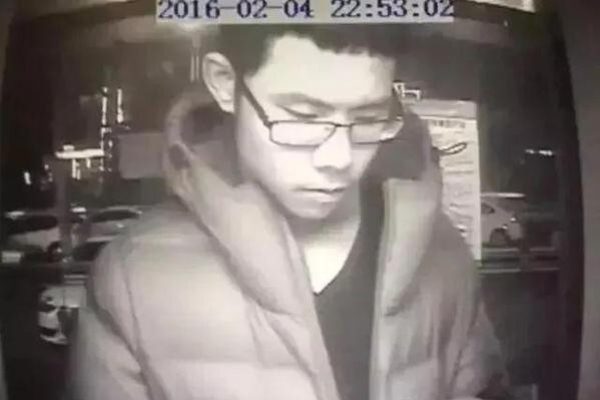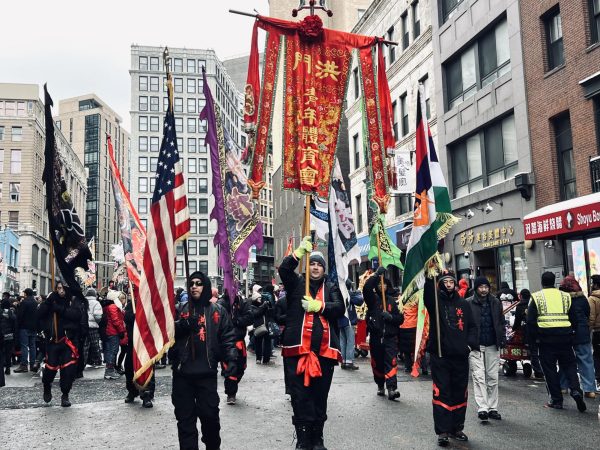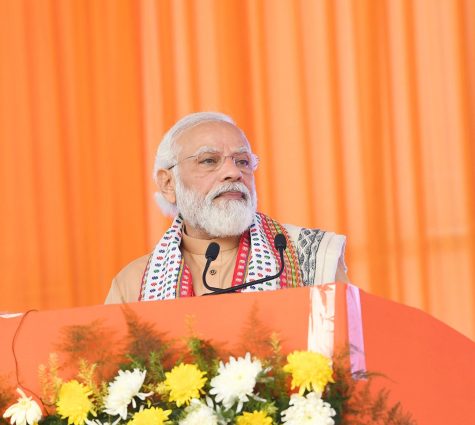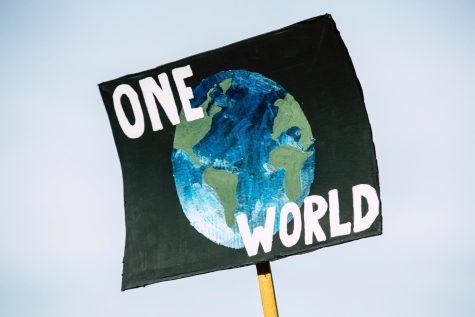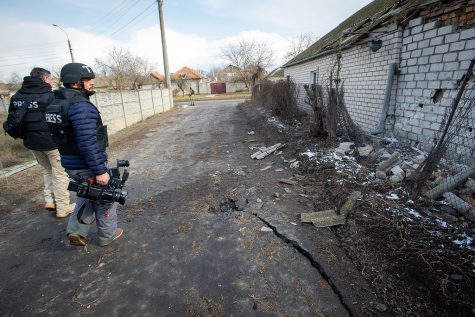Landmark Trial In China’s #MeToo Evolution Reaches Settlement, Chinese Newspapers Fail to Pay Attention
Richard Liu Qiangdong, the founder of Chinese e-commerce giant JD.com, reached a settlement earlier this month with Liu Jingyao, a former student at the University of Minnesota who accused the billionaire of rape after a business dinner in 2018 and filed a civil lawsuit in 2019.
The settlement was announced on Oct. 1, just two days before the jury trial was set to begin. In a joint statement, lawyers from both sides said that the plaintiff and the defendant had agreed to “set aside their differences, and settle their legal dispute in order to avoid further pain and suffering caused by the lawsuit.”
This is a landmark case in the evolution of the Chinese #MeToo movement, as the defendant Richard Liu is one of the highest-profile Chinese business leaders and was once a member of China’s parliament advisory body. The case has spurred a lot of gossip and victim blaming in China.
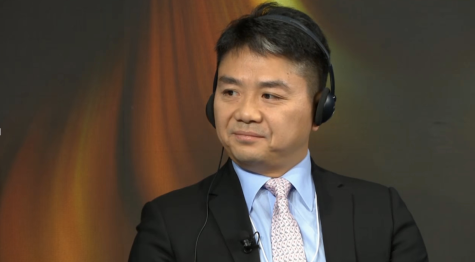
However, regardless of its significance, the case failed to make waves in the media. On the contrary, major mainstream news publications from the Chinese mainland have been quiet about the case, emphasizing the challenge faced by Chinese #MeToo activists.
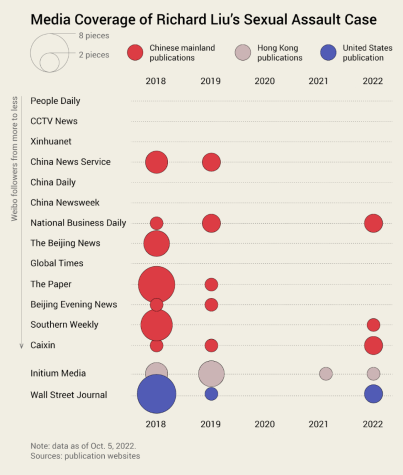
(CC: Manyun Zou)
As the above data visualization highlights, the Chinese state-owned newspaper People Daily, which has 150 million followers on Weibo, the Chinese version of Twitter, has remained silent on the case, deciding not to report the story even once. The same can be said for state-run broadcaster CCTV News and the online website of the official state news agency Xinhuanet. Both of them have more than 90 million followers on Weibo and again, have not dedicated even a small amount of coverage to this case.
The Paper, an online publication with 31 million Weibo followers, published the most pieces in 2018: five pieces in September when the case first happened and three pieces in December, when Minnesota prosecutors decided not to charge Richard Liu. But The Paper did not keep up its efforts afterwards. As of Oct. 5, 2022, when the data was collected, the Shanghai-based media organization has yet to report the settlement, a seemingly important new development in this case. Similarly, Southern Weekly, the once high-flying resistance Chinese investigative newspaper, initially heavily covered the case with six pieces in 2018 but has fallen into near silence more recently. It ran a recap summary of events this May but has also missed the coverage of the settlement.
As of Oct. 5, Caixin, a Beijing-based financial news outlet with 8 million Weibo followers, and National Business Daily, another national business news outlet with 48 million Weibo followers, are the only two major mainstream Chinese publications that have covered the settlement. As a comparison, Hong Kong-based Chinese online news platform Initium Media has been consistently following up on the case with regular reporting efforts: three pieces in 2018, four pieces in 2019, one piece in 2021, and one piece in 2022.
The Wall Street Journal and Initium Media are also included as news sources in the data visualization to provide a comparison between the relatively high amount of coverage in the US where the events are said to have occurred and from a neutral, Singapore based media outlet and the reporting, or lack of, in China.
The diminishing or non-existent coverage among Chinese mainstream publications reflects the immense barriers in the way of progress for the Chinese #MeToo movement. China, where the entirety of the mainstream news media are state-owned, has the sixth-lowest ranking in the 2022 Press Freedom Index, only scoring higher than Myanmar, Turkmenistan, Iran, Eritrea, and North Korea.
The #MeToo movement began in China in 2017, in response to the global wave of the phenomena, which inspired a former Beihang University student to speak out with sexual harassment accusations against her former professor Chen Xiaowu. Then a string of former students stood up and exposed abusive educators in a series of scandals involving Peking University, Shanghai Normal University, Shanghai University of Traditional Chinese Medicine, and more. Victims from the workplace, religious, and government sectors also joined the movement later on, raising their voices in support of the movement with their own accusations.
But the majority of the cases faded out of the public eye quickly and quietly, either without any follow-up at all or a statement of notification saying “the investigation has started.” According to a group of volunteers, who put together the resource, “#MeToo in China Archives,” as of July 2019, only six out of over 50 cases went to trial, including the case of Liu Jingyao vs. Richard Liu but also other higher profile incidents. For example, Zhou Xiaoxuan lost her lawsuit appeal this August against Zhu Jun, a legendary Chinese TV host. Zhou accused Zhu of sexual assault and harassment when she was an intern at the TV station in 2014. But the mainstream media in the Chinese mainland, again, held their silence.
Nevertheless, Chinese activists have yet to give up hope. The supporters of Liu Jingyao, who had gathered in Minnesota to support and accompany her for the trial, recently voiced their displeasure by leaving a banner they had prepared for the trial on the mascot of the University of Minnesota, where a professor had initially recruited Liu as a volunteer in a program for visiting international executives leading to the events of this case, reading “#MeToo movement will forever move forward.”
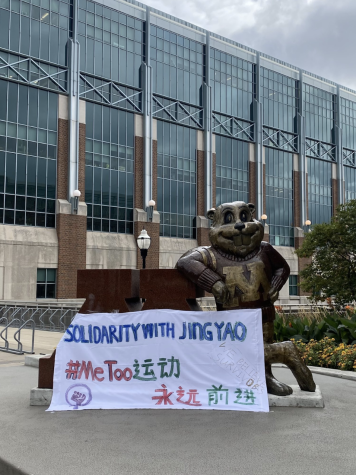
(Twitter @XiaowenLiang17)

Manyun Zou is a graduate student at majoring in applied quantitative analysis and social science at Northeastern University. She was previously a data...



